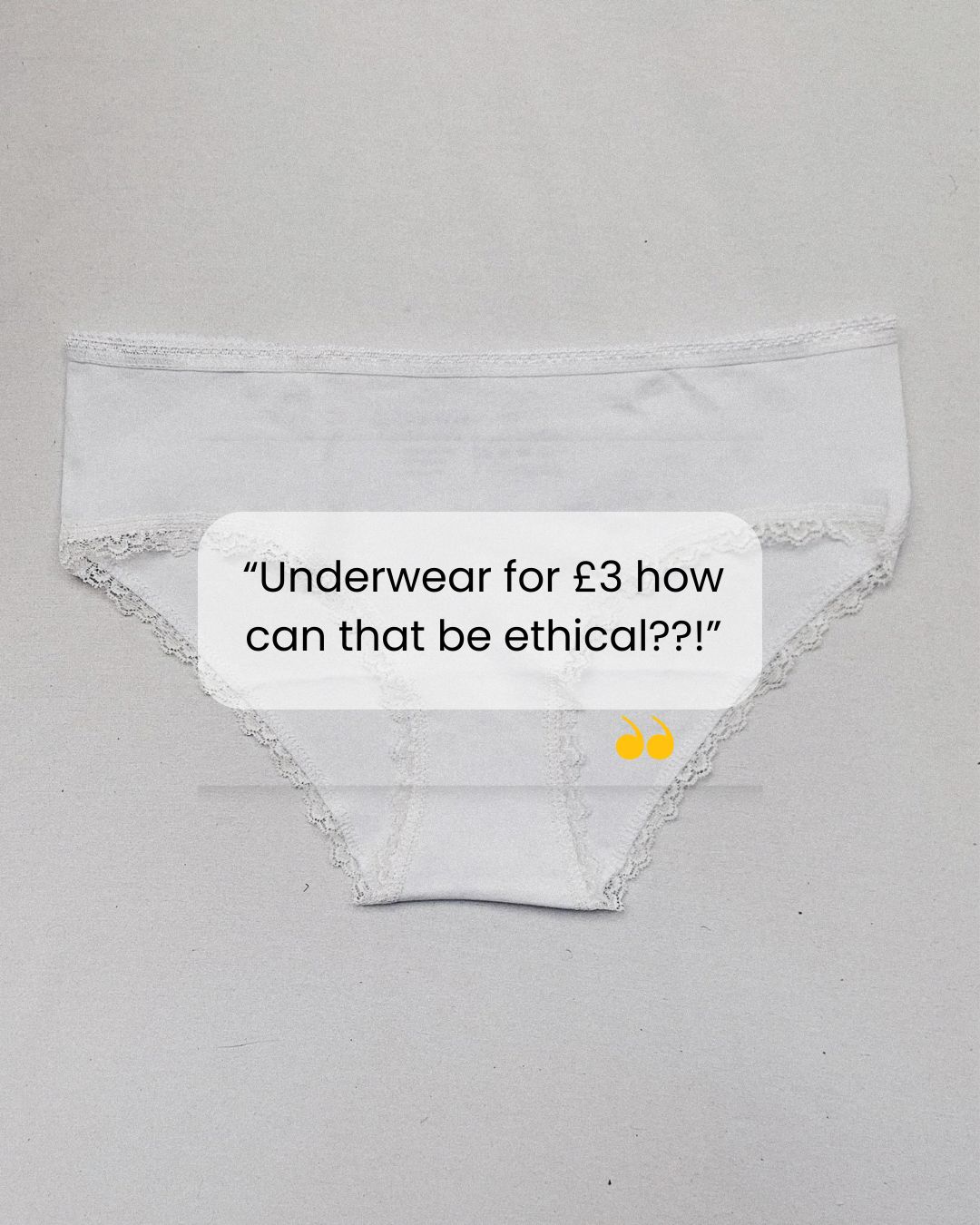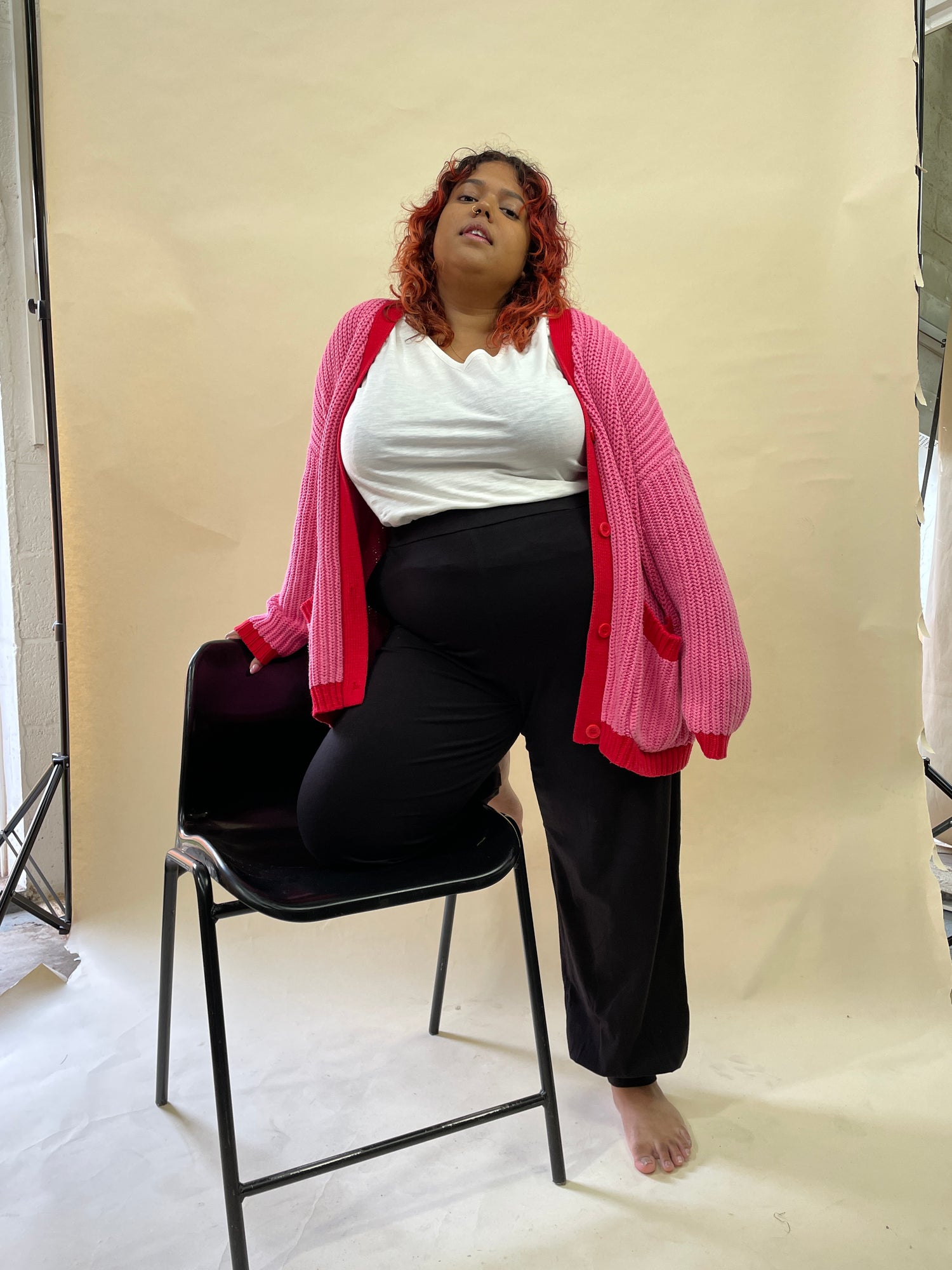Sancho’s is the home of sustainable fashion and ethical lifestyle products. Our Black woman owned business is based in Exeter, UK where we believe in doing better, providing sustainable and affordable clothing options. Through activism and spreading awareness, we are working towards a kinder world. Shop our transparent pricing collection here, our Organic Cotton Bestsellers here and read more about us here
3 myths about ethical fashion debunked
The topic of sustainability has become more and more popular over the past few years. However, there are still quite a few myths and misconceptions around ethical fashion. In this post, I will debunk 3 common myths to help you understand more about it and encourage you to be a more conscious fashion consumer, if you are not already.
- Price: Ethical fashion is expensive.
If you compare ethical fashion to fast fashion prices, then one might think that sustainable products are more expensive, but the reason behind is that consumers are so used to buying cheap fast fashion items that make everything else look expensive. However, fast fashion prices come with underpaid labour, low quality garments and cheap products.
“Cheap prices may seem appealing in the short term,” Cary Somers, founder of Fashion Revolution (FR) says, “but all of us as global citizens will ultimately end up paying the external cost, the true cost of the unsustainable consumption and production of cheap clothing based on the exploitation of raw materials, workers and the environment.”
The truth is that buying ethically and buying less will save you money in the longer term. Rather than buying £25 jeans that will be worn out after a few wears, it would be better to invest in a £100 well-made pair of jeans that will last for a longer time with proper care. When shopping for clothes, you should consider the Cost per wear (CPW), which is given by dividing the cost of the item by the number of times you wear it. You will soon discover that investing in ethical fashion pieces will be cheaper in the long run.
Consider also buying second-hand clothing. For example, going to thrift shops or organising clothing swaps with friends are two other ways to extend the life of a product, which otherwise would be thrown away. Now there are also apps like Depop, ThredUp or Poshmark which allow you to buy clothing at a more affordable price. Sancho’s is launching the BETA version of Shwap, a website to sell and buy second hand sustainable fashion.
Another reason why ethical fashion is more expensive is the cost of sustainable materials. Compared to synthetic fibers made of chemicals, organic fabrics are more expensive to be produced, requiring more time and more effort in the planting, harvesting, dyeing and cutting process. The ethical production of fabrics involves reducing the use of pesticides and waste and respecting labour rights. Contrary to what fast-fashion brands do.
If you want to know more the movie River Blue talks about the water pollution in Asia caused by the dying process for fast fashion clothing.
Indeed, fast-fashion brands outsourced their labour in developing countries, such as Bangladesh, India, China, Vietnam. Factory workers are often subjected to inhumane working conditions and forms of abuse. According to an Oxfam report from 2019, 0% of garment workers from Bangladesh and 1% of garment workers from Vietnam earned a living wage. This prevents workers from saving money to have a safety net while they look for alternative employment. Women often let their young daughters start working in the factory because one wage is not enough to support their families. Providing a living wage and basic workplace rights, such as sick leave and reasonable working hours to factory workers makes the price of ethically produced clothing increas to something reflecting realistic and fair working conditions. Moreover, sustainable brands often choose to produce locally, where wages are higher compared to developing countries. By supporting ethical fashion brands, you’re also helping workers to have access to financial resources and taking them away from a situation of poverty.
- Choice: Ethical fashion offers a limited choice.
One could argue that ethical fashion is not for fashion lovers who enjoy following trends. But keeping up with the trends is not that easy, economically viable or sustainable. You would end up buying poor-quality fast-fashion products which will end up in the bin. Instead of this wasteful process, you could choose trends that suit you and develop your own style and personality. Once you have discovered your own style, you can invest in good quality items and build a curated wardrobe. With fewer clothes you will develop your creativity, test out new combinations and make the best out of your sustainable wardrobe. Most of the shops we see daily are fast fashion brands, which push you to buy by releasing new articles almost every day. You will need will-power to ignore all of this and do a bit of research to find ethical brands you like. Buying ethical fashion will result in a personal mind-shift and a different perception of fashion, it will be hard to go back to old habits. Plus, there are many small brands, designers and creators that you can support.
- Impact: Brand that claim to be ethical might not be as ethical as you think: watch out for greenwashing!
Greenwashing is when companies make false or misleading claims to emphasise their sustainability efforts, while they are not actually doing much for the environment. “It’s easy to say something is sustainable and not have to prove it,” says Amina Razvi, executive director of Sustainable Apparel Coalition. “It’s not always backed up by real, credible data. It makes it difficult for consumers to make smart choices.” A lot of fast fashion giants use this technique to make themselves appear ethical and take advantage of consumers, while workers are still working in poor conditions. Do your research and look for figures and information that support the claims brands make, such as:
“What percentage of their products are made with recycled materials?” […] “What quantifiable goals do they have listed publicly?” Razvi adds. “Companies truly committed to sustainable practices are setting ambitious goals that can be backed by science. They measure and are committed to reducing environmental impacts [every year]”.
Another factor to beware is transparency. Brands are increasingly publishing more information about their suppliers following the #whomademyclothes campaign led by Fashion Revolution. Fashion Revolution’s Transparency Index contains information about top brands supply chains, production lines and social and environmental impact. However, this is not necessarily an indicator of ethics as Aja Barber, writer and fashion consultant, recently wrote in one of her Instagram posts.
If you want to know more about it, Good on You is a directory of many brands which have been checked and rated according to the following categories: planet, people, and animals.
Sustainability is not only about caring for the environment, but is “meeting the needs of the present without compromising the ability of future generations to meet their owns”. It involves 3 key aspects: social, environmental and economic. The social aspect as mentioned earlier regards ensuring that people working in factories and manufacturers are not exploited. Environmental consists of lowering the impact on the environment, including supporting brands committed to pollute less, trying to shop locally to minimise the travelling of goods, avoiding animal products etc. Economics is about re-assessing the value placed on profit and short-term benefits and having instead long-term benefits in mind. Consumer minds should move away from instant gratification and over-consumption and realise fast-fashion price tags have actually twisted our expectations of what is a realistic and sustainable price point. Rather than supporting the fast-fashion law of “ever cheaper”, which is killing smaller brands and independent designers, invest in ethical fashion pieces. Once consumers understand that the current system is broken and they have the economic power to create change, ethical practices will become widespread and part of our daily life.
Written by Alice Vinardi



